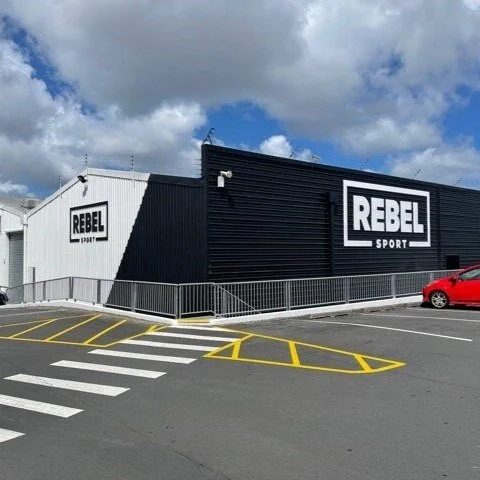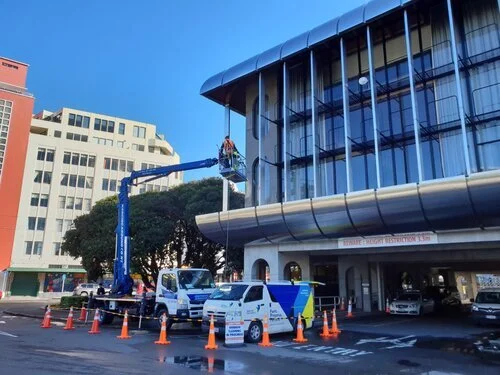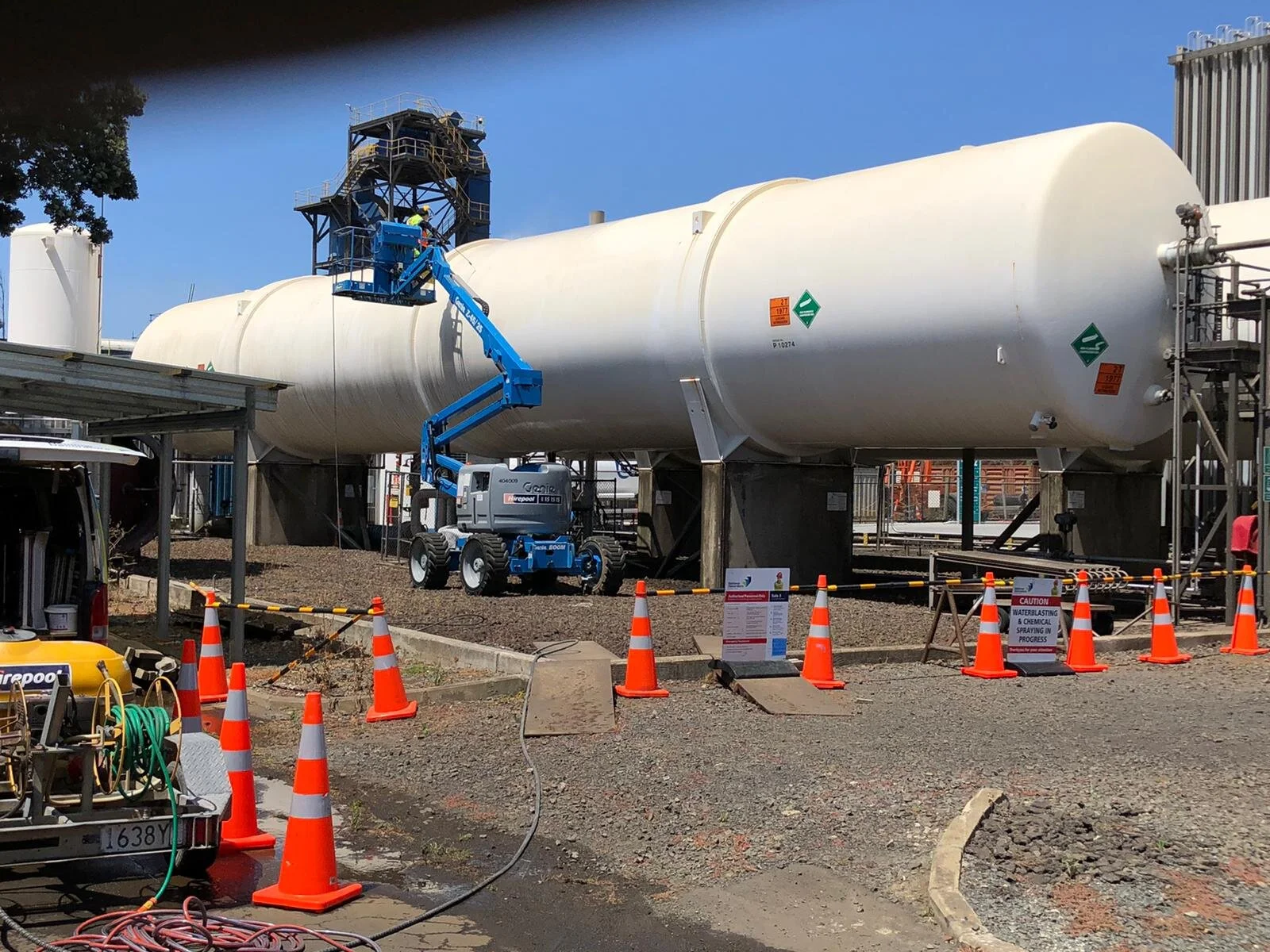Video - Lessons from Mobil: How To Hire a Nationwide Washing Contractor
Lessons from Mobil: How To Hire a Nationwide Washing Contractor
You’re just about to decide on a contractor to provide washing services to all your sites across the country. When they’re working in remote areas of the country, how can you rest assured that they will be upholding your strict H&S requirements when no one else is around to see?
Will they stick to your values, or will you get multiple complaints about their conduct?
How do you make sure you’re making the very best, long term decision for your company?
Back a few years, we had all the certifications and awards you could hope for. We were the market leaders in our field with a huge focus on safety.
But then came Mobil.
In the oil industry, Mobil is very proud of their best-in-class safety record, and has a very practical hands-on approach to Health & Safety across the world. They get accused of ‘wrapping contractors up in cotton wool’ with their incredibly strict safety regime, but rightly argue that this is justified by the result - they have an incredibly low safety incident rate. Read more here ExonMobil Safety Overview
Mobils representatives were interested in having our company on board for washing their sites across the country, so they kindly came and visited our office. 5 hours later they had torn gaping holes in our systems, found major faults in our processes and proved to us that our documentation was not directly connected with what happened on the ground – even though our systems were some of the best in the country!!
Turn the clock forward 12 months and the situation was very different. By using our experience with Mobil to re design our processes from ground up and repair the flaws, we could ensure that we would remain at the top of our game and guarantee that our teams and our customers would benefit for years to come.
In this article we share some of the key lessons we learned from Mobil, and some frameworks you can apply to ensure you don’t end up with an unsatisfactory end result from your contractors.
1. Safety, Safety, Safety!
All contractors will advise you that they’ll be working safely in accordance with WorksafeNZ Best Practice Guidelines etc (as we did with Mobil). Most contractors will have a SiteWise, ACC or Prequal type qualification document to show you, as well as lengthy Health & Safety plans and documentation. But…..there’s a big BUT here…..
These systems work very well to ensure the H&S documentation is up to speed. But even if you could check all the documentation and processes, unfortunately it’s not worth the paper it’s written on if it doesn’t translate to consistently effective action on the ground.
So this was a key area the Mobil team quizzed us on. Questions like how can you demonstrate that the teams on your projects actually know their stuff? Do they know where to find the SOP’s and the steps covered for all particular tasks? How can you prove that the team leader on site knows the company policy for accessing the roof, and that he or she can demonstrate that they’ve been through the training to do the task required? If a new employee starts on this project, what assurance is there that they have been trained to do the tasks safely?
2. Subcontractors or No Subcontractors?
Establishing and maintaining a nationwide business is a resource-hungry operation. As a result, some companies choose to use subcontractors in some, or all, of their regions. The inherent issue with subcontractors is that they are given a set amount of money to do what are often small tasks, and they need to get in and out as fast as possible to make any money at all. They’re in it for the money rather than for the long term interest of the client.
Very few companies have the resources and systems to manage subcontractors, so questioning your contractor around this key issue is very important.
If you do need to use subcontractors, ensure you request a list of all companies that will be on your sites. And then conduct the same due diligence on them as you would for the main contractor. This way, you know who will actually be completing the work and can be confident you’ve reduced the chances of any nasty surprises.
3. Reporting, reporting, reporting.
You need to find out what reporting your contractor will give you, because all reports were not born equal! Standard practice is for the client to receive a daily report with photographs of the worksite set up and ready to go. And then a completion report emailed with information such as the staff on site that day, and any safety concerns etc.
So ask your contractor to demonstrate the reports you will receive, including who is on site each day, safety inspections, auditing etc.
4. Quality expectations
Everyone says they want ‘quality’. But quality is a relative term and your quality requirements will depend on many factors. The interior of a nationwide chain of 4 star motels have a quality requirement that is different to a network of 120 fuel stations.
The key with quality is to ensure expectations are clear at the start, and then have a process to check they are being followed during the contract. Request that your contractor demonstrates (not just tells you) how their quality assurance system works. This should include how and when the sites will be audited and the criteria they will be audited against.
How do I put All this together??
Asking contractors the hard questions is difficult for anyone, so follow this process:
Firstly, download the Contractor Assessment Tool below and send it to your potential contractors. They will tick either YES or NO to a series of questions, and then comes the critical part - they’ll be asked to provide evidence for all the items they’ve advised that they do comply with.
Once each contractor has completed the assessment tool, you will add up the positives and negatives and rate each contractor against each other. It will become apparant very quickly which contractors are worth partnering with.
Secondly, once you’ve decided on the one or two contractors that you could partner with, have a face-to-face meeting (or Zoom meeting) to discuss the list of assessment points. A great tip here is to ask point blank questions about what the contractor has noted on the assessment form. Being face-to-face, you’ll get an accurate ‘gut feel’ about whether a contractor is really understands your organisation, and is the type of partner for you long term.
But….. we have our own procurement process, won’t they cover this?
Go right back to the start of this article - our company had been ‘passed’ by Procurement departments at many large corporates when in fact we weren’t up to what we said. Procurement is great at sorting the paperwork and the box ticking, but seldom do they do due diligence to what actually matters on site when the rubber hits the road.
Click here: Tender v Partnership - what works best?












